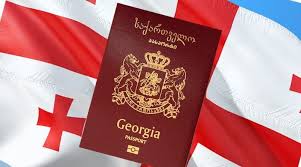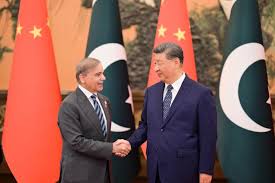Georgian Dream pushes back on EU’s visa-free travel ultimatum

Brussels: Leaders of the ruling Georgian Dream party in Tbilisi are showing no signs of reversing their authoritarian political course after the European Union threatened to suspend visa-free travel privileges for all Georgians, unless the government takes fast action to put the country back on a democratic path.
Georgian Dream leaders have characterized EU talk about suspending visa-free travel as “blackmail.” In pushing back, Prime Minister Irakli Kobakhidze responded to the EU ultimatum by repeating a long-used trope that Brussels is somehow striving to embroil Georgia in the Russia-Ukraine war, and that surrendering to Brussels’ demands will somehow require Georgia to abandon a peaceful political course.
“If the question arises of either peace and stability or visa-free, of course we will prioritize peace and stability,” he said.
A Georgian Dream MP, Nino Tsilosani, cast the matter as a question of national self-determination. “This serves the sole purpose of making the Georgian people choose to travel comfortably in Europe rather than have their country remain sovereign,” Tsilosani complained.
From the EU’s standpoint, it is more a matter of actions having consequences. Over the past year, the Georgian government has taken a sharp turn away from EU integration, thumbing its nose at Brussels along the way, adopting laws antithetical to EU values, while cementing the party’s control over the levers of power.
The EU has consistently voiced disapproval over Georgian Dream’s actions, and has imposed limited sanctions on top government officials. More robust sanctions, however, have been blocked by two EU member states that have solid ties with Tbilisi — Hungary and Slovakia. The situation now appears to have reached a point for many EU decision-makers that they feel the union’s international credibility is at stake.
“So far, we’ve maintained the position that we don’t want to harm the Georgian people,” the EU’s foreign policy chief, Kaja Kallas, said at a July 15 news briefing. “Democratic backsliding in Georgia will come at a cost.”
Earlier that day, an EU foreign ministers meeting voted to send a diplomatic note tantamount to an ultimatum to the Georgian government, stating that visa-free travel privileges will be revoked on August 31 unless Georgian Dream officials comply with eight requirements to expand democratic rights and strengthen efforts to curb corruption.
The shrill nature of Georgian Dream’s response suggests that the EU has struck a sensitive spot with its ultimatum. The loss of visa-free travel could prove to be political dynamite in Georgia, scrambling the existing domestic political calculus by imposing a tangible penalty on all Georgians for Georgian Dream officials’ political behavior.
Despite government efforts to spin the issue, a significant majority of Georgians appear inclined to blame Georgian Dream for the loss of visa-free travel. Any EU move, then, has the potential to cause a significant dip in support among those who form Georgian Dream’s base of popular support, while reinvigorating a mass protest movement.
A letter delivered to Georgia’s mission to the EU in Brussels specified the eight steps that Tbilisi must take in the next six weeks to avoid a visa-free travel suspension, including ensuring fundamental individual liberties.
Critically for Georgian Dream, the EU demands the repeal of “any legislation that may restrict fundamental rights and freedoms that go against the principle of non-discrimination and contradict relevant European and international standards,” including controversial ‘foreign influence’ law and the ‘family values’ bills. The letter also demands that the government adopt a new anti-corruption framework that pays “special attention to the investigation, prosecution and adjudication of high-level corruption cases.”





